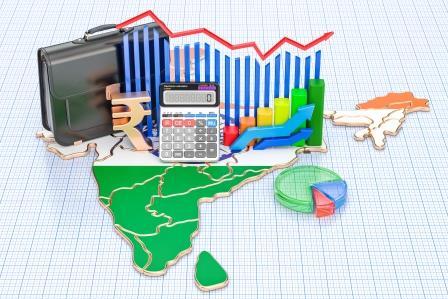
For countries having large trade relations with China, the coronavirus outbreak could have an adverse impact on their economy.
The coronavirus outbreak in China is shaking up the global economy and its ripple effect is already being felt across the commodities markets. Since China is an important player in the commodity market, moderate economic activity in the country after the virus outbreak is disrupting the global commodity supply chain.
As the number of coronavirus infections continue to grow, travel and business across China has been hit and the fresh restrictions on its residents has made people prisoners in their own homes. Factories continue to remain closed in many cities even after the week long Lunar New Year holidays. Though some factories have restarted operation several large companies are still struggling to be fully operational.
The economic impact of the coronavirus outbreak on the Chinese economy is expected to be far worse than the outbreak of SARS in 2002-03. However, the spread of virus outside China appeared to be slow. But for countries having large trade relations with China, the outbreak could have an adverse impact on their economy.
China’s economy has recorded its slowest growth rate over many quarters due to trade dispute with the US. The new virus threat could weigh its economy further down due to weak manufacturing and service activities. As per the latest Reuters report, China’s first quarter GDP growth may drop to 5 percent or even lower.
Global equities had a mixed response to the virus outbreak, but industrial commodities plunged sharply as many Chinese factories remain idled. Prices of iron ore, copper, aluminium, and zinc declined to multi-month lows. Crude oil and natural gas prices too shed dramatically on feeble demand expectations.
Since mid-January, copper prices in the key LME platform shed 9 percent and nickel, the commodity used for making steel, declined about 7 percent. Lead and zinc prices weakened by 10 percent and 7 percent respectively. Aluminium, which is widely used in automobile and packaging industries, shed about 4 percent during the period. In the meantime, safe haven commodities like gold gained considerably. Similar trends were seen in US dollar and Japanese yen.
On expectation of lower fuel demand amid travel restrictions crude oil prices plunged by more than 14 percent since mid-January. Feeble industrial demand pushed down natural gas prices by 13 percent to a four-year low in NYMEX platform.
China’s industry heavy economy is the world’s largest consumer of raw material. As per reports, China is currently delaying shipments to offload in their ports or turning back deliveries after revoking contracts.
Shipments from Australian iron ore companies are now facing a two-week quarantine before being able to reload. Likewise, China is in discussion with major mining companies to delay shipments to Chinese ports. Natural gas imports from Qatar to Indonesia to China is also under pressure due to lesser industrial fuel demand.
China had recently signalled additional stimulus measures in the near term to prop up the economy to offset the present economic feebleness caused by trade war. But, there are speculations that the rising expenditure on healthcare is likely to limit the room for spending in other areas like infrastructure, tourism, etc.
Looking ahead, if the impact of coronavirus eases, commodity prices will possibly rebound on expectations of production. Meanwhile, an immediate bounce back in consumption may not call for robust economic recovery as activities in the country were already tight due to trade war. Factories may also take a long time be back at full-speed even after restarting operation.
First published in Moneycontrol.









